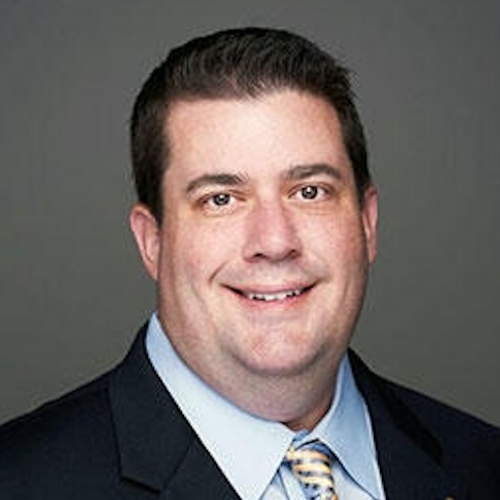Does home and car insurance cover hurricane damage? It depends.
When a hurricane is headed toward where you live, there's always stress and anxiety of the unknown. You're probably making sure you have enough food, water, and fuel, and thinking about how to keep your home and car safe. You may even be asked to evacuate to a safer area.
The last thing you want to worry about during this time is, “do I have enough insurance coverage in case my home or car are damaged in the storm?”
High winds, falling trees, and other debris are often the primary causes of damage in many hurricane-related claims. The next most common cause of damage my team sees is often from loss of power and rising water. Is your insurance ready?
Before I get into reviewing your insurance, here's a quick tip: always take reasonable precautions to prevent damage. As the saying goes, an ounce of prevention is worth a pound of cure.
As an insurance agent living in hurricane-prone Houston, Texas, I've heard of too many people having their insurance claims denied because they didn't take reasonable precautions. You don't want your claim to get denied because you neglected to trim back tree branches or didn't maintain your roof over the years.
Now let's dig into your insurance coverage and what to look for while preparing for hurricanes.
Understanding your insurance coverage & hurricanes
Ideally, you should review your insurance policies well before hurricane season. New policies or “add-ons” to existing policies, known as endorsements, may have a grace period before they take effect.
Here's what you should look for in your policies.
Homeowners Insurance: Check if your homeowners insurance covers damages from hurricanes, such as wind and water damage. Pay attention to any limits, deductibles, and exclusions that might affect your coverage. Sometimes wind-driven rain is not included.
Too often, people are surprised to learn that their home insurance doesn't cover the replacement cost for their roof or won't pay to match their existing siding and windows—and these can be big expenses.
I also highly recommend a flood insurance policy to all homeowners which is typically not included in standard homeowners policies.
Flood Insurance: That's right, most homeowners insurance policies don't cover flood damage, which is very common during hurricanes. Make sure you have a separate flood insurance policy, even if you don't live in an area typically prone to floods. Everyone can benefit from flood insurance.
I also encourage you to consider a flood insurance policy that includes coverage to replace your things if you need to buy brand new ones (often called Personal Property Replacement Cost coverage) and coverage to stay in a hotel if your home is unlivable after a flood (often called Living Expense coverage). These additional coverages don't come with all flood insurance policies (including FEMA's National Flood Insurance Program) so it is important to talk to a local agent to find ones that do have them as an option.
Auto Insurance: Review your car insurance policy to see if it covers hurricane-related damages like flooding or fallen trees and debris. Comprehensive coverage should cover you here, and I really can't recommend it enough. Comprehensive coverage can be extremely helpful to have even for everyday risks.
Umbrella Insurance: Think about adding umbrella insurance for extra liability protection. This can help cover costs if you're sued for something related to hurricane damage on your property or involving your vehicle. This coverage may protect your assets from storm-related claims and extends to other situations, such as if someone gets injured on your property.
Another quick tip for being hurricane ready: give your deductibles and limits a once-over for every type of insurance you have.
If disaster strikes, will you be able to afford to pay your deductible before your insurance kicks in? If not, you may want to consider lowering it. If your house is a total loss after a storm, is your current insurance limit (the maximum that it will pay-out in a covered claim) enough to rebuild your home in today's (inflation-adjusted) dollars? If not, you may want to consider increasing it.
Insurance and hurricane-related claims
If you make a claim, make sure you call or file it online as soon as you see the damage and take steps to prevent further damage (either yourself or with the help of a professional).
You then want to seek out a reputable professional who specializes in working with insurance companies to inspect the damage and provide estimates and photographs as quickly as possible.
You do not have to wait for an adjuster to start this process but understand that just because you start these steps does not guarantee your claim will be approved; it's a proactive approach to the process.
Be patient during times of national disasters. Most insurance companies are moving adjusters from all over the country to handle claims as fast as possible during large scale emergencies. These adjusters try to work as fast as they can, but there is a ton of work to complete, and they are doing their best while they live away from home for weeks or months at a time.
And finally, during this stressful time, your local, expert insurance agent is going to be invaluable. They will walk you through the process of your claim and advocate for you along the way. They will help advise you on what to look for, document, ask, and communicate about during the process to have the best outcome.
How do I talk to an insurance agent?
Reach out to my team and we'll review your insurance coverage to make sure you're hurricane ready. If you don't live in Texas, you can find someone who is licensed in your state by searching for a Comparion insurance agent near you.


